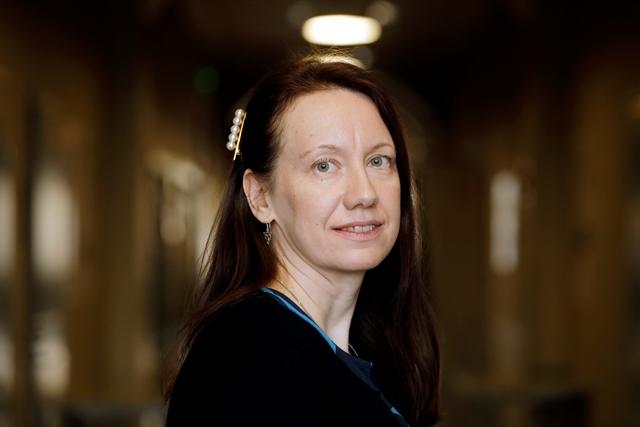Anne Kouvonen
Doctor of Social Sciences (Sociology), Docent (Public Health), Dr. habil. (Psychology)
Professor of Social Policy at the University of Helsinki.
What are you currently working on within the DigiIN project?
I lead a work package that is examining the challenges of digitalisation in multicultural Finland.
Read more: Challenges of digitalisation in a multicultural society
What are the main objectives of the DigiIN project?
To reform the health and social care service culture, achieve better digital services for all, and prevent the digital and social exclusion of the most vulnerable people.
What are the key topics for your focus area?
We produce data that focuses primarily on the everyday problems, concerns and needs related to digital health and social welfare services among working-age and older people with a migrant background. We further seek ways to overcome these issues through providing various support services.
We pay attention to individual, social and structural factors when investigating both the causes of the problems in digital service use, as well as the possible solutions.
How is the research done and how are the answers found?
We study these areas using both qualitative (interviews and observations) and quantitative (surveys) research methods.
What results have been obtained?
Our key finding is that digital exclusion is not only or always about the lack of digital skills, but is often linked more broadly to social disadvantage , involving issues such as unemployment, health problems, low education, poverty and illiteracy.
In other words, digital exclusion is not always a question of age. Young adults may also have problems using public digital services.
Is there a topic or activity that you think cannot or should not be ‘digitised?
Dental services cannot be digitised, nor can the children’s health clinics (at least not entirely).
At the more general level, it is important that the availability of public services should also be secured for those young midlife and older people who, for one reason or another, cannot independently access public digital services.
What digital service do you use yourself (in your work or in your leisure time) and could recommend to others?
Twitter and WhatsApp.
What do you do when you want to take a break from your research work?
Yoga/Pilates, mindfulness and outdoor activities are all part of my daily routine.
